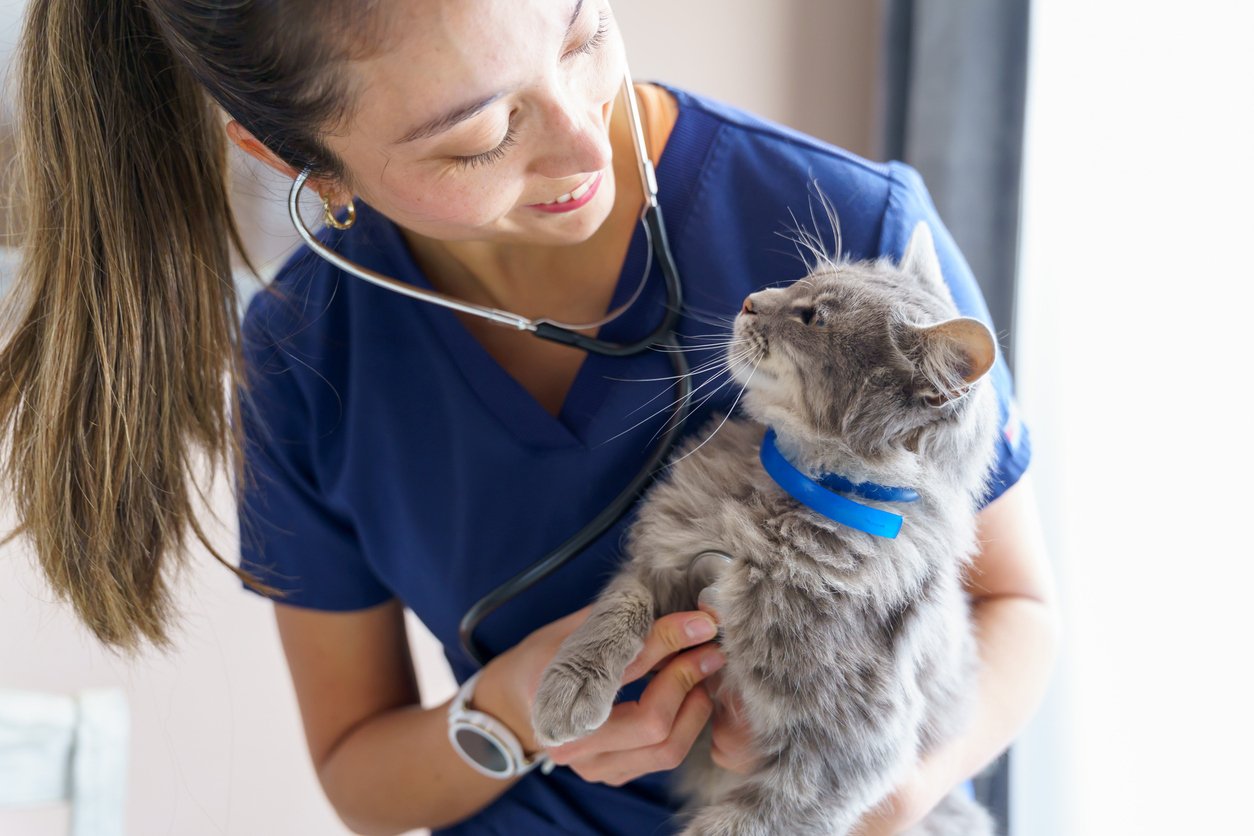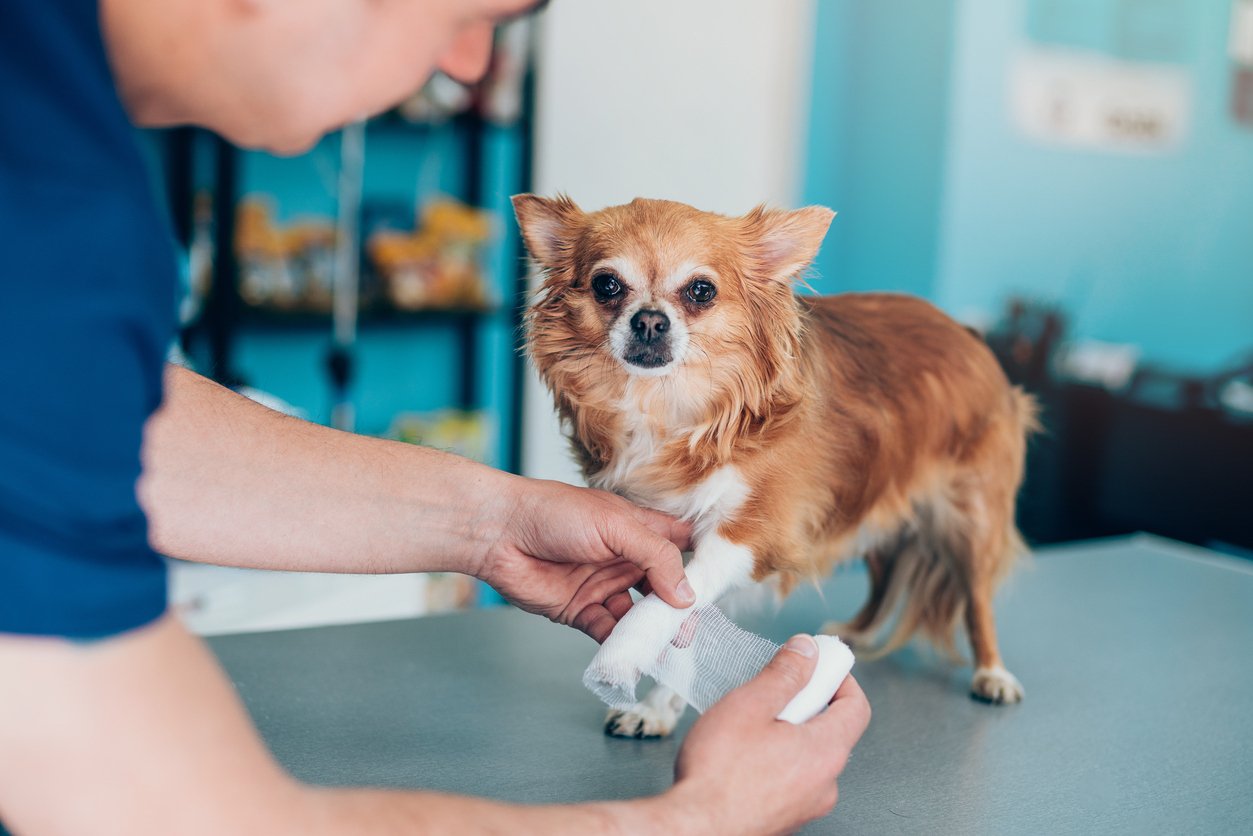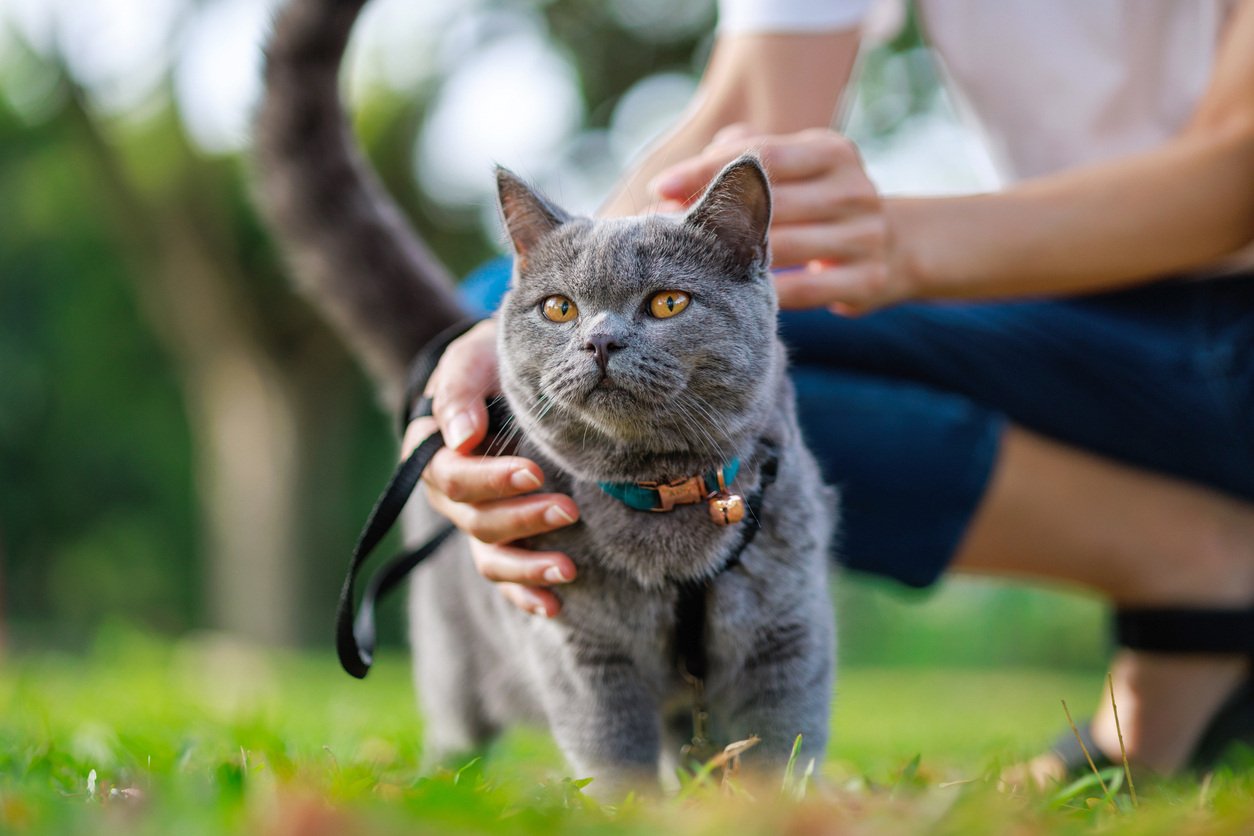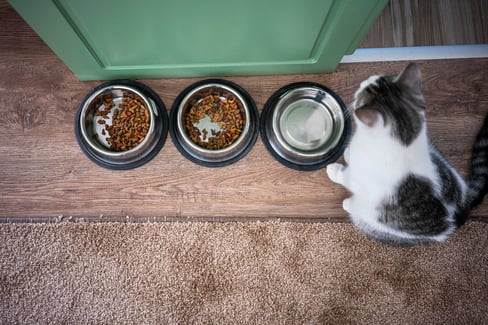Table of Contents
There’s nothing quite as exciting as bringing home a four-week-old kitten. Those teeny kitten mews and bright eyes would make anyone fall in love!
However, don’t get too caught up in their cuteness—kittens are still a lot of work!
To make sure your four-week-old kitty has a long, healthy life, you’ll need to give them proper care during these early stages of life.
We’ve put together a guide on 4-week-old kitten care to make things easier. Keep reading for all the details on your new cat’s behavior, needs, and care.
How to Care for a 4-Week-Old Kitten?
Caring for a 4-week-old kitten requires careful monitoring and regular vet checkups. By doing both, you can ensure that your new kitty stays healthy.
At this young age, your kitty is meeting lots of milestones that will help him develop properly.
To care for your young kitten, you’ll need to pick up a couple of items. Each of these helps your cat develop his brain and body at the right pace.
|
Key Item |
Why It Matters |
|
Playpen |
Kittens need a space where they feel safe and there are no risks to their well-being. Since kittens spend 90% of their time sleeping, the ideal is a quiet room without loud noises. |
|
Bed |
Young kittens don’t regulate their temperature, so the ideal is a bed with high edges that prevents them from getting out easily and allows them to stay warm. |
|
Toys |
Newborn kittens are developing their brains, which means that they need constant stimulation from toys |
|
Scratching post |
Little kitties love using their paws, and providing them with a scratching post helps them not only work their motor skills but also helps them develop their claws, paws, and brains. |
|
Litterbox |
A 4-week-old kitten can learn to bathe itself and use the litterbox instinctively. This is a good time to introduce the litterbox and encourage your kitty to use it. |
Another big part of caring for your new kitty is taking regular trips to the vet. Little kittens need lots of vaccines to keep them from getting sick in their new world!
And, of course, remember to give your kitten plenty of attention. This will help your kitten develop the right social skills for later in life.
TRI-ACTA for Pets
A proactive approach for developing and younger adult pets to maintain optimal joint health mobility, minimize inflammation and fend off age-related ailments.

4 Weeks Old Kitten Care Things to Consider
Even though you’ve got a quick rundown of 4-week-old kitten care, these little tykes can be a handful.
There are lots of things that you’ll want to consider after adopting a new kitten.
One of the main factors to take into account is the time, effort, and patience required to help your kitty grow into a healthy adult. Besides that, you’ll need to consider things such as:
- Behavior
- Vet care
- Bedding
- Socialization
- Playing
- Feeding
Let’s take a look at each of these factors in a bit more detail.
Behavior
One thing to keep in mind as your little kitty develops is its appearance. Four-week-old kittens look a bit different than they do when they’re first born.
At this stage of life, your kitten has already developed its eye color. It’s also developed a strong sense of smell, so discovering new scents can trigger interest or other reactions in your kitten.
On that note, this is when kittens spend most of their time exploring. They use their noses to sniff out new scents and discover interesting objects or unknown places.
4-week-old kittens are very active. They’ve got lots of energy, and spend a lot of time running, climbing, and scampering. To help your kitten develop these motor skills, you can give it toys that stimulate its senses.
A couple of good picks include:
- Scratching posts, preferably covered with rough material such as sisal.
- Cat wands with feathers or toys to stimulate its hunter instinct.
- Treat dispensers to build on the kitten’s natural curiosity.
Let your kitten explore the different toys that you have. This is its chance to show off its personality!
Speaking of personality, there are five different personalities that your cat may start to develop:
- Dominant: alpha and tend to hog resources
- Neurotic: anxious and shy
- Extroverted: highly curious and “nosy”
- Impulsive: spontaneous and unpredictable
- Agreeable: friendly and easygoing
Your kitten’s personality will depend a lot on the socialization and interactions they have at this young age. Watch for how they’re developing and take note of what traits they’re starting to develop.
You should also remember that at this age, your kitten is teething. Teething is a painful process, and giving your kitten things to chew on can help stimulate the gums and relieve discomfort.
Vet Care
Many people only take their kitten to the vet if there’s a munchkin cat health problem on their mind. However, this is a mistake.
Little kittens need regular vet checkups to make sure that they’re developing properly!
For one thing, regular check-ups at the vet’s office can help keep an eye on your kitten’s weight. A healthy 4-week-old kitten should weigh between 13 and 16 ounces. If they’re a long way outside this weight range, it could indicate a health issue.
On top of that, this is the time to monitor your kitty’s temperature. Unlike when they're newborns, four-week-old kittens don’t rely on us for temperature control. However, that’s not to say that their temperature isn’t still important.
Check out this chart to get a feel for normal and abnormal temperatures in a 4-week-old kitten.
|
Temperature |
Meaning |
|
101.3° - 102.2 °F (38.5° - 39.0 °C) |
The normal temperature and suitable for your kitten |
|
98.6° - 100.4 ° F (37.0° - 38 °C) |
Monitor temperature and take measures to increase the body heat of the kitten, monitor every hour. |
|
96.8° - 98.6 °F (36.0° - 37.0°C) |
This indicates that the kitten is at risk of hypothermia and needs vet attention immediately |
|
Under 96.8 °F (Under 36 °C) |
An extreme situation which indicates severe sickness and a low probability of survival. |
Finally, keep an eye on your kitten for general signs of sickness. A few indicators that your kitten might not be feeling himself include:
- Loss of appetite
- Kitten who always strays from its siblings
- Diarrhea or vomiting
- Shortness of breath or agitated breathing
- Runny nose, bloodshot eyes
- Swelling
One or more of these symptoms generally warrant a trip to the vet.
Bedding
Bedding is another big part of caring for your little kitty. What we want to think about here is the cat’s mother.
In general, the idea with a kitten’s bedding is to simulate the presence of a mama cat. This helps comfort your kitten and makes him feel safe, secure, and happy.
On top of that, nap time is one of the most important parts of your kitten’s life. As we said before, kittens do a lot of sleeping!
To help your kitten rest properly, you’ll need to find a quiet place for its bedding. From there, create a bed using soft, warm material.
Clean blankets and cushions tend to work well. You can also pad the area with hot water bottles, but make sure that they’re wrapped in a towel first. Otherwise, you could inadvertently cause burns, heat shocks, or hyperthermia in your kitten.
Another thing to remember about your kitten’s bedding is that young cats love privacy and small spaces. A basket, crate, or cat carrier often works well as a resting place for your furbaby.
Pro tip: some people recommend using heated blankets for kittens. However, these run the risk of overheating your cat, so it’s generally best to steer clear of these.
Socialization
Little cats need socialization to make sure that they develop properly. Not only does socialization help their brains and personalities develop, but it also helps ensure that they’re comfortable around people and other animals.
If you have a litter of kittens, socialization becomes easier, as kittens will play and take naps together. But if it’s just you and your furbaby, you can socialize your cat in a few different ways:
- Petting your cat
- Sleeping with your cat
- Regularly playing with your cat
- Encouraging your cat to sit with you
- Holding your cat
- Letting your cat sniff you
You can schedule regular socialization times for your kitten, such as:
- Before bottle feeding
- After bottle feeding
- Before bedtime
Doing so can help you develop a routine and make sure that your kitten is getting enough interaction each day.
Playing
Playtime is an important part of your kitten’s development. That’s because this is how they develop instincts and motor skills.
In general, you want to play with your cat three to four times per day. Try to make each session last about 15-minutes.
During your playtime sessions with your cat, use a variety of toys. You also want to make sure the toys are interactive so that your kitten can properly develop his motor skills and instincts.
Feeding
When your kitten reaches four years old, his baby teeth are starting to come through his gums. That means it's time to start offering him solid kitten food and to focus on weaning him off kitten milk.
Remember, when you focus on feeding your four-week-old kitten, you need to look for food with a soft texture. This way, the food is easy for your cat’s baby teeth to chew.
Also, look for flavors that your cat enjoys. This helps him acquire a taste for solid food and encourages him to eat.
This is also a good time to introduce cat supplements to your kitten. Supplements can help ensure your kitten’s bones, limbs, and joints develop properly. A few things a good kitten supplement should contain include:
- Glucosamine
- Calcium
- Phosphorous
- Omega-3 fatty acids
These nutrients help your kitten properly develop so that they can grow into strong, healthy adult cats!
4 Weeks Old Kitten Care Tips
Besides these things to consider, there are a couple of tips you can keep in mind for helping your kitten develop properly.
Following these kitten care tips can make sure that your kitten has everything he needs to develop properly.
Let’s check out a couple of tips for helping your little one grow into a happy adult cat.
1. Make Sure Your Kitten Catches His Z’s
Some kittens struggle with sleeping. Sleeping is an important part of helping your kitten develop, which means that it’s critical Kitty gets enough of it.
One reason young kittens struggle to get to sleep is because of anxiety. This is especially true for kittens that are separated from their litter at a young age.
If your kitty is struggling with sleeping, you can help him out by placing a ticking clock near him under his blanket. The vibrations from the ticking can help your kitten feel as though he has littermates nearby. That way, he feels less stressed and is able to get to sleep better.
2. Keep Some Milk on Hand
Even though at four weeks you should be weaning your kitten off milk, this isn’t an immediate process.
Try to keep some kitten milk on hand in case your kitten is having trouble adjusting to food. Gradually give him less and less milk to help him adjust to eating normal cat food.
Pro tip: Ran out of kitten milk? In a pinch, you can mix raw, beaten egg with goat milk or lactose-free milk. However, this shouldn’t be used for prolonged consumption as it can cause diarrhea or colic in large amounts.
3. Introduce Kitten Supplements
Four weeks is a good time to introduce cat supplements to your kitten. Supplements can help ensure your kitten’s bones, limbs, and joints develop properly. A few things a good kitten supplement should contain include:
- Glucosamine
- Calcium
- Phosphorous
- Omega-3 fatty acids
- Chondroitin sulfate
- MSM
- Hyaluronic acid
These nutrients help your kitten properly develop so that they can grow into strong, healthy adult cats!
Conclusion
Being a full-time parent of a 4-week-old kitten is not as easy as it seems. However, with these handy tips, you can take care of your kitten without a hitch.
Make sure to properly socialize your cat, schedule playtime, give it the right bedding, and maintain a regular feeding schedule. Doing so will help your kitty develop into a rambunctious and healthy adult!
Another key part of helping your four-week-old kitten develop is introducing the right nutrients into its diet. Check out TRI-ACTA, and make sure your kitten gets everything it needs to develop its joints, bones, and ligaments correctly.
TRI-ACTA for Pets
A proactive approach for developing and younger adult pets to maintain optimal joint health mobility, minimize inflammation and fend off age-related ailments.

Newsletter Signup
Subscribe to our newsletter to receive the latest news and exclusive offers.
.jpg?height=2000&name=Cliick_Integricare-DISPLAY-REVISEDV2%20(1).jpg)
Proactive & Therapeutic Joint Supplements
When given daily, Integricare joint supplements recover bone and joint injuries faster and help prevent mobility injuries from happening in the first place.









